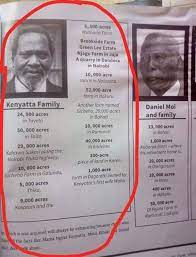As the big orange sun slowly sunk down the village of Makhele, it splashed it rays on the southern reaches of the Great Mountain of Masaaba. Slowly but steadily walked Wekuke, an elder and diviner from the clan of Baala. Behind him, a huge crowd following him continued to build up. Disturbed by awful dreams, his soul had seen what had for long troubled the village. Wekuke was headed to a particular homestead down the path to mwifubukho. He was an Omulakusi, and for sure, this evening; his wits had directed to tackle the old woman who was responsible for increased infant deaths in the village.
Bukusu Occupations & Peculiarities
The Babukusu of Western Kenya, were largely talented in many occupations, socially and spiritually. Away from producing excellent weavers (baruki be biraka, chindubi ne chindelu), potters (babumbi be chimpanga ne chisongo), and blacksmiths (babasi be wamachari, buyingo ne kamafumo), the community was endowed with the presence of diviners. The art of divination among the community entailed the ability to sense evil and root it out through spiritual prowess.
But then, research into Bukusu culture suggests that the (mentioned) occupations were specific to definite clans. In fact, two common proverb go; buubasi bulonda silibwa [ironmongery follows the gate] and bukhebi bulondanga ekholo [circumcision doctorship follows the clan].
For instance;
· Bayaya, Basang’alo, Baabasaba, Basonge and Baleyi produced circumcision doctors [bakhebi];
· Baafu, Bamuyonga, Balako and Bakolati gave talented blacksmiths [babasi]
· Batukwiika, Bubuulo, Bakoyabi, Bayemba and Bakhwami – community and military leaders [Bafwara ekutusi],
· Bakhoyonjo, Baabuya, Batilu, Bachesoli and Balunda – rain makers [Bakimba efula]
· Bayiitu, Bachemayi, Basang’alo, and Babangachi – give public lectures [Basena kumuse] and many others.
Bulakusi, a special occupation
However, bulakusi (divination) was not specifically tied to any specific clan. Balakusi had a special place in the ways of life in Bukusu clans. Irrespective of their gender, wealth or occupation, they strongly responded to the calling to fish out evil among the people. Often, diviners (balakusi) could learn divination through their fathers and grandfathers through inheritance.
The main brief shows the functions of diviners among Babukusu included;
i. They had prime role of fight social evils like magic and witchcraft. They just like Wekuke; they could rise up and fight magic with magic setting the community free of such evils. They used traditional medicine and instruments to the defense of the community, often expecting no rewards.
ii. Diviners reveal secrets and expose wrong doers in the society. By doing so, they kept the community morally clean.
iii. Some diviners had the power to predict on future occurrences. They could be consulted to bring rain, bless wombs or even fore-warn the community of impeding danger such as war or famine.
iv. Bukusu diviners also interpreted messages from the spiritual world. They had abilities to communicate with psychic world, relaying messages of long gone ancestors and spirits so as to give direction to the living. By doing so, diviners mediate between the people and God (Khakaba) or ancestors.
v. They often were called upon for cleansing rituals such as healing rare diseases, cleansing victims of incest and generation curses among others. They could cleanse warriors before going to mission so as to bring victory on the part of the community.
vi. They acted as judges or consultants in spiritual sense. They could supervise offering of sacrifices, mediating over conflicting people and parties or counseling the community on religious and social matters.
vii. Finally, due to their prowess in traditional medicine and charms, Bukusu diviners would heal the sick and offer relieving remedies for the suffering.
Wele wa Kasawa
From the Bakimweyi clan emerged a young man from a relatively wealthy family. After about two dozen seasons after his birth, he went under the knife, enjoying the Babanyange age-set. Kasawa would acquire a large piece of land and herds of cattle from his father. History rememberers are uncertain whether wa Kasawa had brothers and sisters.
One fine evening, while in the grazing lands, alone, something strange happened. Wele wa Kasawa, now a full grown man, was taken up by a mysterious power and lifted up into the skies. (It is a synonymous account to that of Elijah wa Nameme, last of Bukusu seers, who allegedly hit a soccer ball, disappearing into the clouds, never to be found). Back to our narration, the cattle were able to return to the homestead by themselves. Friends and relatives tried in vain to search for wa Kasawa. The ultimate conclusion was that he had been eaten up by wild animals.
It was after a fortnight that wa Kasawa was sighted once again. People were surprised, having lost hope that he had died. It is said; emakombe seli ne lusambu [the world of dead has no garden]. But alas! Wele wa Kasawa came forth carrying two wild shrub fruits –chindulandula and two black smooth shaped river stones. Upon people converging, he told them that he had been taken into the skies and he had come back completely different. He had been gifted with four items he returned with. From that day, Wele wa Kasawa emerged as a sharp diviner who practiced bulakusi using the two stones. Later accounts suggest that Wele wa Kasawa would go blind, but still then his bulakusi gift was as fresh as ever!
Proverb: Enjeko yabene sokipa lukhendu ta [Don’t strike a palm stick to somebody’s banana pillar]. In Bukusu culture, such an action is interpreted as a curse. It means that be cautious with interfering with other peoples' issues and affairs – lest you court evil.











Comments